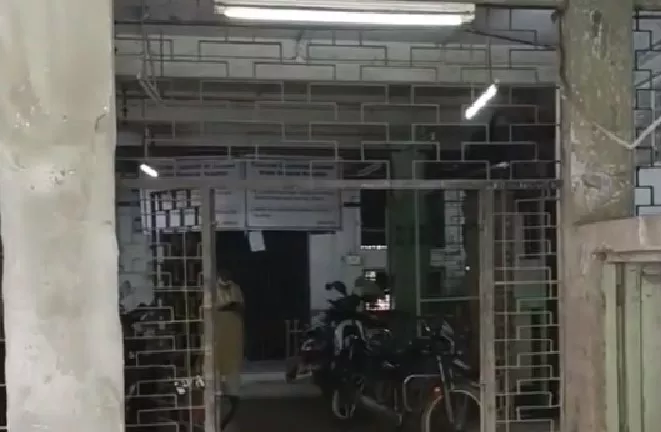.gif)
.gif)

The Tulsiram Laxmidevi Jaiswal Hospital in Ghusdi, Howrah, has found itself entangled in a dire situation as it grapples with an overwhelming presence of mosquitoes, effectively turning the medical facility into a breeding ground for the disease-carrying insects. Even as the hospital asserts its commitment to treating dengue patients, the irony lies in the fact that it seems ill-equipped to manage the very mosquitoes responsible for the outbreak.
Hospital Struggles Amid Rising Dengue Cases:
The escalating dengue cases in the state have kept health officials on high alert, but the recent situation at Tulsiram Laxmidevi Jaiswal Hospital serves as a stark reminder of the challenges that persist. Despite a dengue awareness campaign, a sense of complacency among the public is evident, as the hospital's surroundings teem with stagnant water and mosquito larvae.
Hospital's Irony: Treating Dengue While Ignoring Mosquito Menace:
The hospital management contends that it provides dengue-related treatments, yet its premises tell a different story. Stagnant water, an ideal breeding ground for mosquitoes, is omnipresent, while mosquito larvae flourish unchecked. Such an environment undoubtedly raises serious concerns about patient safety and the efficacy of the treatments offered within these walls.
Hospital Management Pledges Immediate Action:
Kailash Mishra, President of Rogi Kalyan Sangh, has acknowledged the dire state of affairs and assured swift action to remedy the situation. While the hospital claims that 100-120 individuals undergo dengue testing daily, the irony remains that the very healthcare professionals who are meant to combat the disease might find themselves at risk of contracting it due to the hospital's inadequate measures to manage mosquito breeding.
The scenario at Tulsiram Laxmidevi Jaiswal Hospital underscores the importance of a comprehensive approach to tackling dengue. While healthcare institutions provide critical treatment, creating an environment that deters mosquito breeding is equally vital to curbing the spread of the disease.
Watch Report: